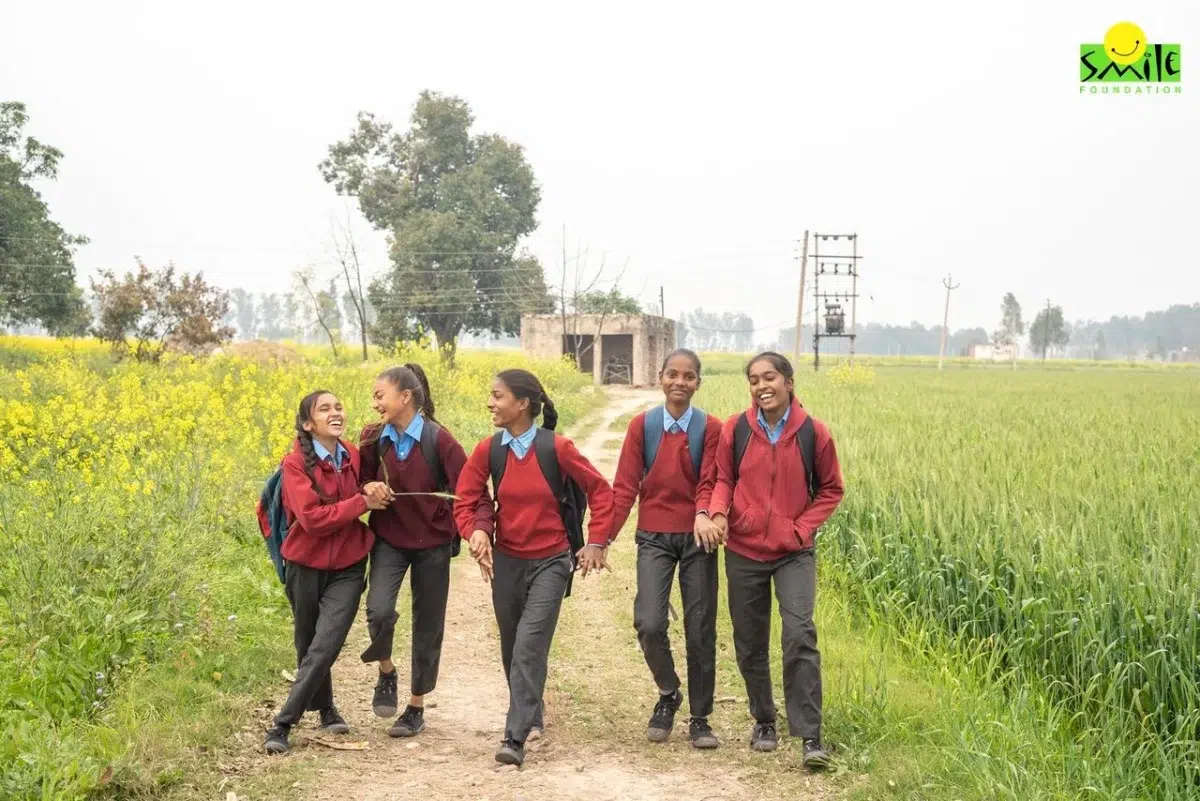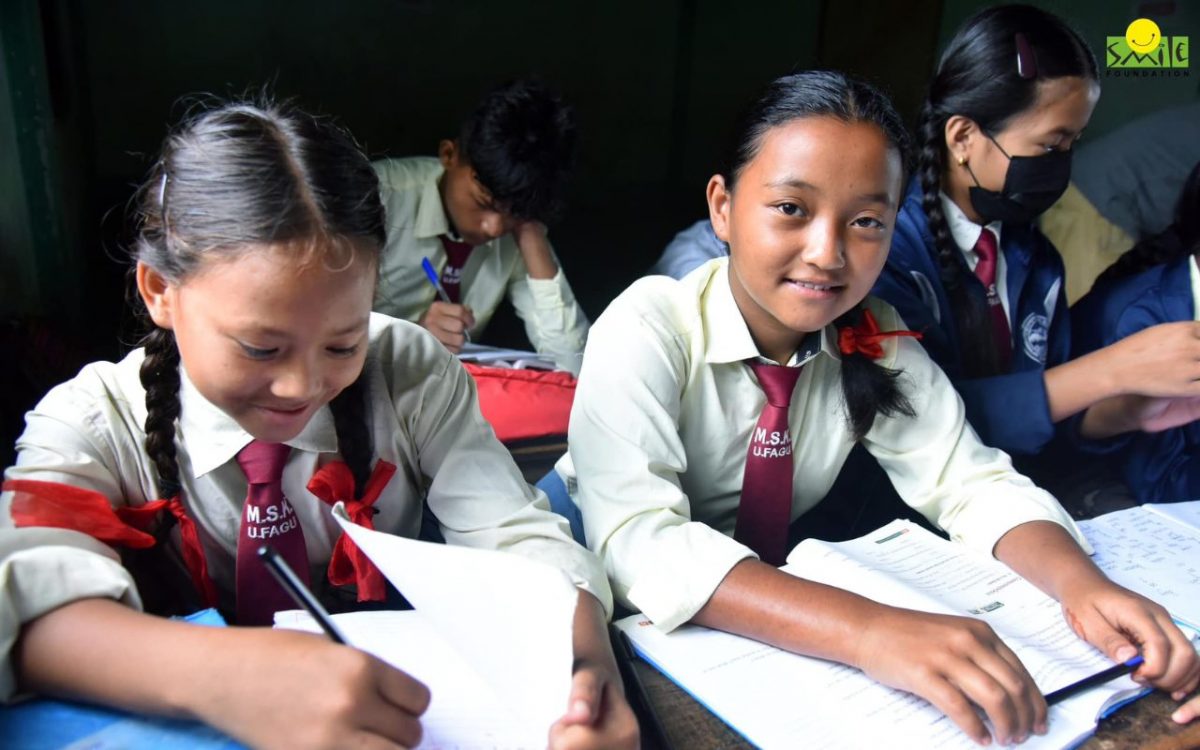The right to education is a fundamental right for every child, regardless of gender, caste or background. It is a birthright that is and (should be) universally recognised. However, despite this widely accepted principle, girls’ education continues to face unique challenges. From birth, many girls are often confronted with the decision of whether they will attend school or take on household responsibilities, while their brothers are sent to school. In families with financial constraints, it is frequently the boys who are prioritised when it comes to education, based on the belief that they will ultimately become the primary breadwinners.
While gender bias is undoubtedly a significant factor in these challenges, it is important to recognise that the most pervasive barrier to girls’ education is poverty. Poverty, alongside issues such as poor nutrition, lack of financial literacy and limited empowerment opportunities, often prevents girls from completing their education. In this context, scholarships for girls’ education play a crucial role in bridging the gap, offering them the opportunity to realise their potential and live the reality of their ambition and hard work. By supporting girls in their educational journey, scholarships enable them to acquire the skills and independence needed to stand on their own feet and overcome the socio-economic challenges they face.
Girl Child Education is for Every Girl
Educating girls is a global imperative and a collective endeavour. Therefore, when we hear of girls being denied an education in countries like South Sudan, Chad and Afghanistan, we must pause and ask ourselves: how is this still acceptable? In today’s world, efforts to empower women through quality education and employment opportunities have become more aligned than ever. It is good food for thought to understand whether all women, regardless of their circumstances, are truly being included in this global movement or not.
India’s journey towards educating girls has been a long and evolving one. The nation’s educational landscape has been shaped by pioneering women who have played a vital role in this revolution. Figures such as Kamala Sohonie, a trailblazing scientist who championed women’s participation in STEM, Neena Gupta, a mathematician who provided the solution to the Zariski Cancellation problem and Dr. Gagandeep Kang, a leading scientist in the development of Rotovac, a vaccine that addresses diarrhoea – a major health issue that is the third leading cause of death among children under five, claiming an estimated 300,000 young lives in India each year.
These remarkable women exemplify the transformative impact of educating girls. There is no question that the roots of girls’ education in India have deepened, embedding themselves in the national consciousness. However, the collaborative implementation of this vision is still in its formative stages and requires continued effort and progress.
Solidify Girl Child Education in India
It is well recognised that challenges such as poverty, poor nutrition and inadequate healthcare are significant barriers to education of girls in India. However, rather than focusing solely on these obstacles, we should direct our attention to finding effective solutions.
Scholarships for girl child education play a crucial role in bridging the gap, connecting the girl, her family and her community with an educational system that is progressively adopting inclusive practices. These scholarships offer hope and confidence to economically disadvantaged parents, encouraging them to prioritise their daughter’s education and invest in her future. In turn, this creates a positive cycle that can contribute to the broader goal of Education for All, ensuring that no child is excluded from the opportunity to learn and succeed.
Scholarships for Girls- Let her study
India’s efforts towards women’s empowerment have been evident across various sectors. Through women’s financial schemes, awareness campaigns, and educational initiatives for girls, the country has made significant strides in fostering a more conscious and sensitised community.
To ensure that girls in India grow up in a safe and healthy environment, particular attention has been paid to both their educational and health development as key pillars of the nation’s progress. Scholarships for girls have played a pivotal role in challenging societal prejudices against educating girls, while providing families with the financial security and confidence to invest in their daughters’ education. This, in turn, empowers girls to realise their aspirations and turn their dreams into reality.
Scholarships such as the AICTE Pragati Scholarships for Girls and the CBSE Merit Scholarship Scheme for Single Girl Child have been instrumental in reducing dropout rates among female students, increasing school enrolment figures and encouraging greater participation in skills development programmes. These initiatives have made a significant contribution to the broader goal of empowering girls and fostering their future success.
Smile for Girl Education
Since 2005, Smile Foundation has been dedicated to supporting economically disadvantaged communities by equipping them with the knowledge and resources needed to work towards their empowerment.
With a strong focus on women’s empowerment, our educational initiatives have been specifically designed to ensure that girls in India receive their right to quality education, with ease and accessibility. Our scholarship programmes for Schooling and Higher education, are actively working with young girls and women who are determined to pursue education and build a brighter future.
These programmes cover essential costs, including tuition fees, school supplies and transportation, enabling students from marginalised communities to concentrate on their studies. In addition to financial support, the scholarships also provide mentorship and guidance, helping students make informed decisions about their futures. Furthermore, recipients of the Higher education scholarships such as Engineering Scholarships are provided with laptops, career counselling and skills-building sessions, ensuring they are fully equipped to succeed in their chosen fields.
Aligned with the core values of the Indian government’s vision and initiatives to overcome the social and economic barriers to girls’ education, we are committed to providing Indian women with a safe, progressive environment where they and their communities can thrive through collective and holistic development. If your CSR goals echo a common vision of empowering girls with education, then join us to create conscious and impactful actions together.




